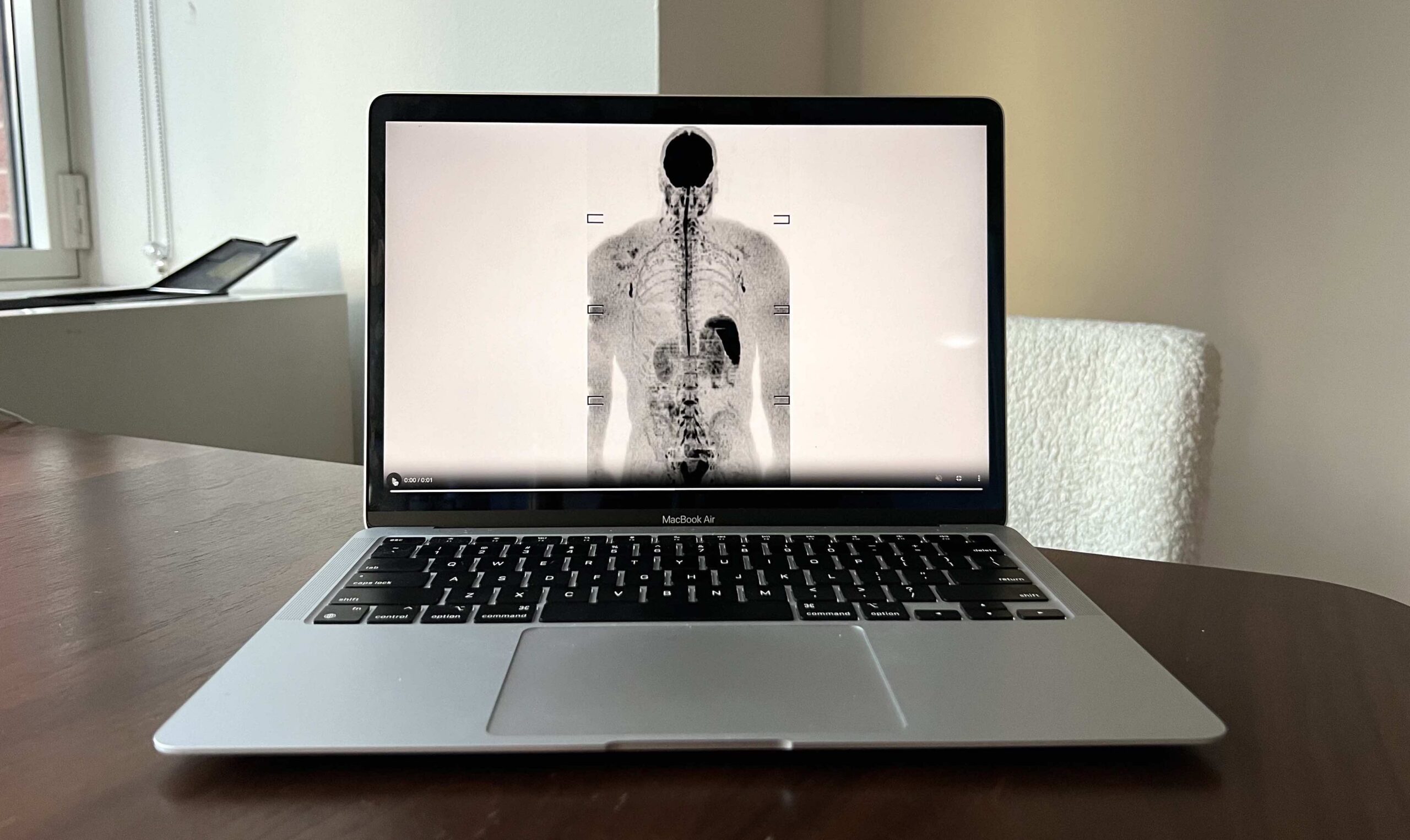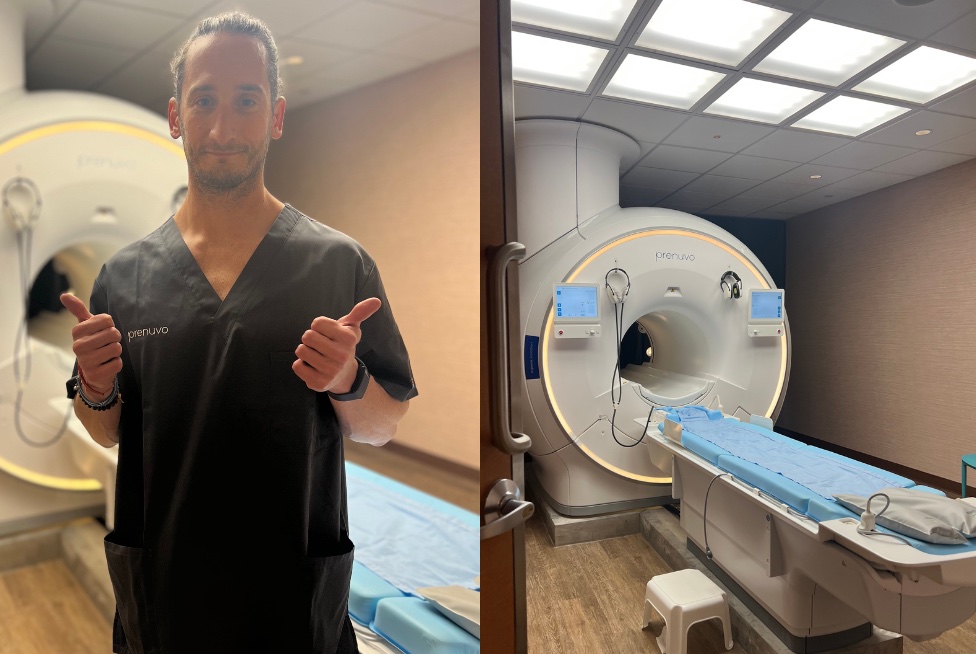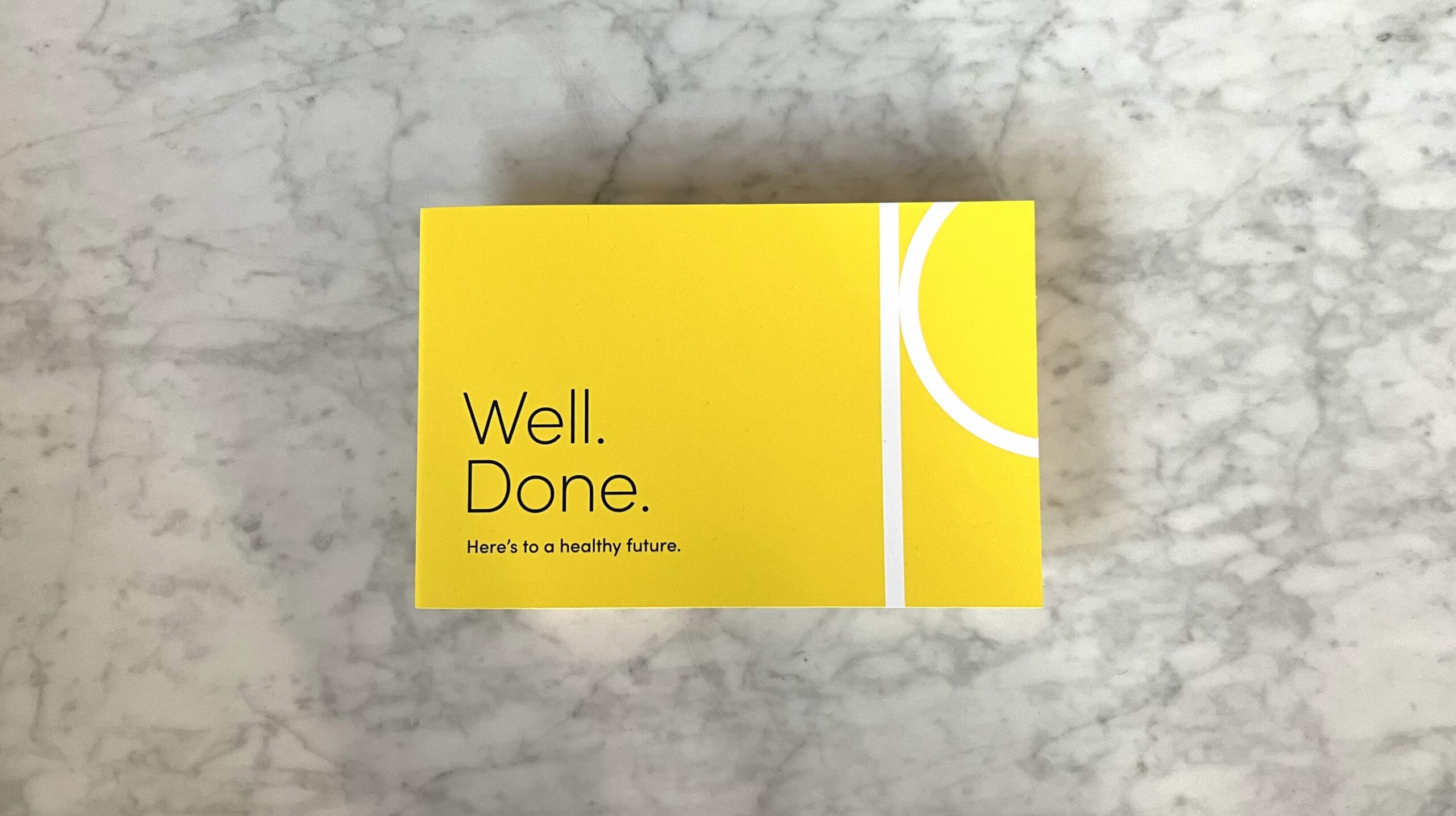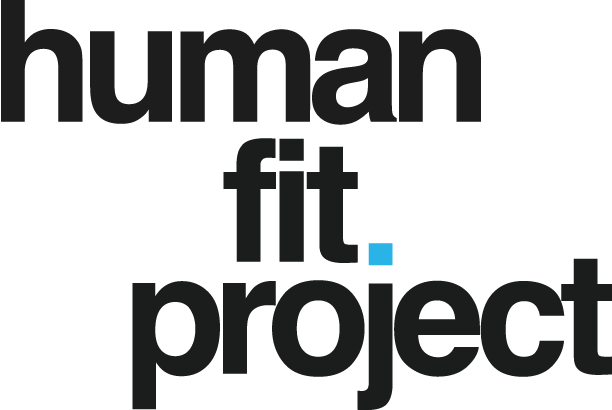I woke up at 3:30 in the morning in a total panic. It was the morning after I had received a full body scan from Prenuvo—the makers of the world’s most advanced whole body health scanner—and I couldn’t stop obsessing over the possibility of the scan picking something up bad. Could those stomach aches I’ve been having recently be from a tumor and not all the trains, planes, and automobiles, I’ve been on and off of, or the lack of hydration or eating normally I’ve been doing? No, it was the latter. How about those headaches? Is it an aneurysm? No, that’s the caffeine withdrawal. But it didn’t stop my mind from catastrophizing.
Getting a scan was scary as hell… and then it wasn’t.

Taking a proactive approach
Originally I was excited about the opportunity of this story, the idea, the technology, and I didn’t think about how I was actually putting myself through something very real and potentially life-changing. One of the most powerful devices on the planet would be identifying every little kink in my armor. Specifically, Prenuvo’s scanner has the ability to detect over 500 conditions, including most solid tumors at stage 1, aneurysms, cysts, and more.
Truth is, for as scary as it was, proactive healthcare makes a lot of sense. Prenuvo has been able to alert 1 in 20 people to a life-saving diagnosis so far. If I can find something early and get it taken care of, that’s better than finding out when it’s too late. I guess it’s a lot like eating well, sleeping well, and working out religiously. If I can mitigate declines and risk, I’m going to do it.
Andrew Lacy, the CEO and founder of Prenuvo, likens it to dentistry: “We understand that if we go [to the dentist] routinely, it’s not going to stop us from having the need for a filling to be done every once in a while, but the likelihood of a root canal goes down significantly—Prenuvo wants to apply that same model to the rest of the body,” he says. As we age, we will have things that go wrong with us, but if we are looking routinely, then we are going to catch those things a lot earlier. Then, Lacy says, you can, more often than not, modify your lifestyle in order to avoid a health condition developing to a stage where you need medical intervention.
Related: The perfect day for brain and body performance
Changing how we think about disease
Because of our current healthcare system that tends to catch disease late, Lacy says many of us (guilty) have a tremendous negative connotation around the whole idea of disease, because disease automatically implies something horrible. “I would like to, through this company, hopefully change the definition of disease for our members,” he says. “ For me, disease means maintenance, early detection, lifestyle interventions, inexpensive, high likelihood of success,” he continues, adding that for folks that come in routinely, that’s how they think about their health.
If we look at cancers, for example, Lacy says that people don’t typically realize that, although all cancers are different and they all grow differently in different people with different ethnicities or genetics, in general they grow a lot slower than you think. “And so we believe that there’s a detection window of around three years to catch that cancer still at stage one,” he says.
Related: How to get better sleep at night
Improving healthspan
Outside of detecting a major disease like cancer early, Prenuvo also monitors seemingly more minor issues. Take, for example, spine curvature, something Lacy himself has been keeping an eye on. Bi-yearly Prenuvo scans showed him that his spine changes a lot in times of high stress. And he’s not alone: “When we image the spines of people in Silicon Valley, in particular young people, and if I show that spine to a radiologist and ask them to guess the age of the person, they’ll be out by 15 to 20 years,” Lacy says, adding that they see people in their twenties that have the spine of a 40-year-old.
Related: The over-40 workout plan to build lean muscle
It makes sense when you consider that every innovation out of Silicon Valley is all about reducing mobility—you can turn your lights on and off and order dinner with your phone. “So there’s this epidemic, we believe, that’s coming down the road,” he says. “It’s going to be a big problem in 20 or 30 years, as these folks reach their fifties and sixties. So we have to really fight this if we’re going to be healthy in our older age.”
Lacy himself is fighting back with movement—walking between six and 12 miles on a treadmill desk daily, specifically—and he’s seen the positive effects on the curvature of his spine in his scans. “One of the single biggest determinants of longevity is mobility,” he says. “What we do in our thirties and forties affects our mobility in our sixties and seventies, and it’s not the intensity of the exercise.”
Related: The mobility routine to do every night
Making the tech accessible to all
That said, healthcare is a delicate topic. It can be confusing, frustrating, and quite frankly, costly. I brought this up with Lacy after several comments on social media along those same lines, and he made a few interesting points. First, he mentions that the company is diligently expanding its scale to incorporate new technologies like AI, with the goal of reducing costs. These savings would then be passed on to consumers, making the scanning service more widely accessible.
They’ve already accomplished that to some degree: “When we started Prenuvo, the closest thing to what we’re doing cost $30,000,” he says, explaining that people with a high cancer risk could get one of these scans in exchange for a $50,000 bill to their insurance company. “So $2,500 or $1000, if we’re just looking for cancer in the torso, is significantly cheaper than the existing alternatives,” Lacy says, adding that the ultimate price needs to be even cheaper than what it is today.
Part of how they’ve been able to do this is through building their own hardware that is customized to whole-body screening. “We’ve spent a lot of time optimizing the screening and the software protocols, and we’re doing a lot of research [on] how AI can help accelerate both the speed and the accuracy of the scan,” Lacy explains. “And that enables us to do a clinical diagnostic quality scan in 55 minutes that used to take three or four hours.”
The bottom line
“We fundamentally believe that if everyone in the US was doing one of these scans, not only would we save millions of lives, but we would be a healthier country and our health system would be much smaller than it is today,” he says.
Keep reading to learn more about my personal experience with Prenuvo, plus more from the interview with Lacy.
The Process of Getting a Full Body Prenuvo Scan

Booking my appointment on prenuvo.com was straightforward. I picked my location and selected a convenient time slot. (Note: If you’re intrigued by the prospect of getting a scan, you can use this special code for a $300 discount. Prenuvo generously provided this discount for our readers. We did not receive payment for this story, our posts, or for sharing this code. Book a scan at prenuvo.com/humanfitproject or for phone appointments mention humanfitproject)
Before my appointment, I needed to fast for 4 hours, although I could have coffee or tea up to 2 hours before the scan.
Upon arrival, I was quickly brought back into a private changing room, where I changed into scrubs, removed all metal and jewelry, and securely stored my belongings.
Soon after, a technician guided me into the room housing the scanner. After ensuring I wasn’t wearing any jewelry and that I felt comfortable, he briefed me on the procedure. I would need to stay completely still, follow some occasional breathing instructions from the machine, and endure a somewhat constricted space. He reassured me that he’d be speaking to me throughout the process, that I could watch a Netflix show to distract myself, and that overall, I’d be just fine.
Most of the time I was just lying still, but the scan did involve a few simple breath-holding exercises to enable the machine to examine my lungs.
After 45-50 minutes, the scan concluded, entirely painless. Yes, the tube felt tight, and I had an initial moment of anxiety, but focusing on my breathing and listening to the technician’s voice soon helped me settle.
Post-scan, I received instructions about the next steps. I was told to expect an email within 5-10 business days containing my results, although I ended up receiving it the next day—a huge relief.
The email directed me to my online account where I could review the findings. They were organized by body system and came with helpful notes, deep dives into the results, and additional FAQs. My report fell into three categories: no adverse findings, informational findings, and minor findings. I could view all the images, a written report, and a copy of the report sent to my primary care physician.
Soon after the email arrived, Prenuvo called to schedule a consultation with a nurse practitioner to discuss my results and answer any questions. This conversation was helpful in putting the results into context and providing further insights. For example, my nurse reassured me I was in very good health and that I’d clearly been taking good care of myself. A finding that did come up was a mild bulged disc in my neck, which has been bothering me for quite some time, and I did suspect something. She recommended I see a physical therapist, which I have and have been managing.
Prenuvo recommends getting a scan every 12 months as a proactive health measure. It’s a commitment I’m seriously considering. After all, when it comes to health, proactive beats reactive every time.
Again, if you’re interested in getting a scan, you can use this special code for a $300 discount. Prenuvo generously provided this discount for our readers. And to reiterate, we did not receive payment for this story, our posts, or for sharing this code. Book a scan at prenuvo.com/humanfitproject or for phone appointments mention humanfitproject)
More from the interview with Andrew Lacy, CEO and Founder of Prenuvo

*This interview has been lightly edited for clarity and concision.
How did you get started on Prenuvo?
In 2018, I had something of a midlife crisis. I’m a serial entrepreneur. I work way too hard. I slept nowhere near enough, and I still had energy in me for another startup. And I started to look really intently in the field of medicine. I really started building the company because I felt like it provided me with an answer to the question, “Am I generally okay right now?” Because I felt like the worst possible thing would be to work really hard to hopefully build for a better future, and not necessarily be around for that future. And so I tried to get an answer to that question and I couldn’t find it anywhere. There were bits and pieces. I did blood tests and colonoscopies and genetic tests. I got a little patchwork of answers, but there was no real comprehensive answer, until I discovered the founding radiologist of Prenuvo, who had been doing these scans in Vancouver, Canada. I went and did a scan. I learned more about my life than had been told to me by the medical system, and frankly just felt like I had seen the future of medicine. And from that day on, it was my mission to really bring this to as many people as possible.
This one is from one of our readers: How many false positives are being detected that lead to unnecessary medical interventions and how patient mortality is affected by this ‘proactive’ approach?
First of all, there’s just a semantic point to make, which is, we don’t necessarily diagnose cancer, we stratify the risk of our imaging findings. So when we see something, for example, in your liver, we will say, “Hey, it’s at the benign end of the spectrum. Don’t do anything about it” or “This is concerning and you need to actually do something about it.”
All imaging has false positives. The question is, how do we reduce or minimize the effect of false positives in our scan? The first is the technique I mentioned, multiparametric MRI with diffusion weighted imaging imaging, a technique called diffusion. This enables us to be a lot more precise about what we’re seeing. So not only will we see a lesion, like a diagnostic MRI, but we have this morphological data about exactly what is that tissue there, so that we can more precisely segment the benign lesions from the lesions that have features that are more concerning.
The second thing that reduces false positives is the way in which we handle indeterminate findings. We are constantly screening and stratifying risk to determine whether something can be clinically significant or not. The vast majority of things that we can’t fully classify into either benign or concerning, are small. And because they’re small, oftentimes the follow-up course of action is measuring change over time between this scan and when you come in for your next scan. And either that will have not grown at all, in which case we know it’s benign, or it will have grown into something that is benign, or it will have turned into something that’s more concerning, and we then do a follow-up test. And that’s an alternative to a biopsy that historically might carry a certain level of risk.
Would Prenuvo seek partnerships with health insurers and healthcare providers? How does Prenuvo navigate the current healthcare system, which is primarily based on treating illness rather than preventing it?
We’re having some success with employers and the insurance companies that administer employer funded plans, so that’s probably for big forward-looking enterprises that want to provide this as a benefit for their employees. And that’s probably the first opportunity we have to really interact with insurance companies and have them understand exactly what it is that we do. And we hope, through those relationships, we’ll be able to explore offering regular health plans offered by those insurers.
What are some other future plans for the company that our readers might be interested in hearing?
An area that we are excited about is AI research we have been doing around quantifying a person’s health trajectory by looking at every organ in the body and then defining what is a “normal aging process.” As we age, all of us, our bodies degenerate to some greater or lesser extent. And our brain starts to shrink, our spine becomes more problematic, our liver changes, our kidneys change, and we start to lose muscle. And what’s really unique about Prenuvo is the vast majority of our members are healthier. They have disease, but they have early stages of disease. They have age related degeneration, but they have earlier stages of that degeneration. And as we scan more and more people, we can start developing almost like an average curve of organ aging from the brain to the liver. And what we hope to be able to do over time, as we measure you from one year to the next, is we’ll say, “Okay, well the average person in your age bracket, their muscle is shrinking 3% a decade, but your muscle’s only shrinking 1% a decade,” or “Your muscle’s not shrinking at all. Whatever you’re doing in keeping it up, keep it up.” If it’s shrinking at the average, how can we, through diet, exercise, through other lifestyle modifications, work to slow down that age related degeneration? And for me, that’s the most exciting thing that we’re working on, to be able to really give you very, very precise and detailed measurements about your health trajectory. We have actually published breakthrough research at top medical conferences around brain health and its connection to our lifestyle, which was led by our AI research and medical teams.
Will it always be Prenuvo and Prenuvo staff handling scans or will you sell equipment to doctors and practices?
This is an area we’re excited about and are exploring in different parts of the world with partners who share our philosophy around preventative health. We are constantly getting emails about people from all over the world wanting to get a scan in their country. At the same time, we want to make this technology as available and accessible as possible.
Again, if you’re interested in getting a scan, you can use this special code for a $300 discount. Prenuvo generously provided this discount for our readers. And to reiterate, we did not receive payment for this story, our posts, or for sharing this code. Book a scan at prenuvo.com/humanfitproject or for phone appointments mention humanfitproject)
—
Need help with a personal health and fitness plan? Apply for coaching.
Got a question or feedback? Hit up Mike on Instagram, Facebook, and Twitter.
Give @humanfitpoject a follow on social media: Instagram, Facebook, and Twitter.
Be first to know about our latest content drops! Sign up for our monthly newsletter.
